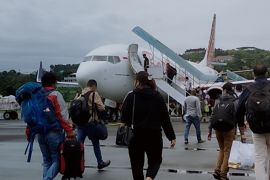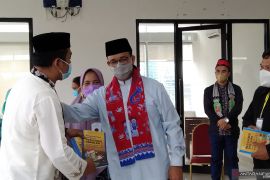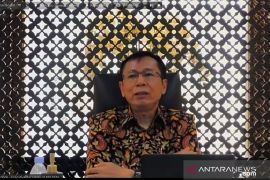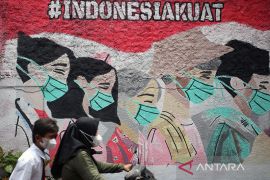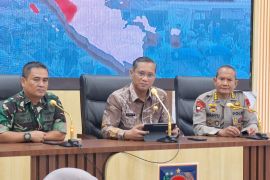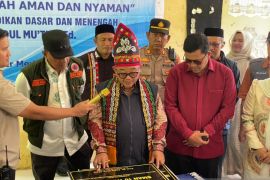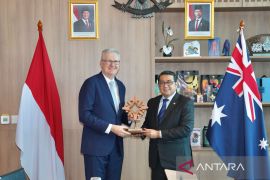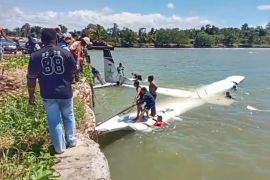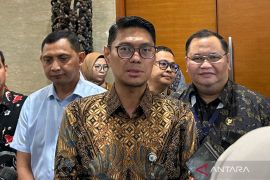However, the decision to end the PPKM policy does not signify the COVID-19 pandemic in Indonesia is over, as the World Health Organization (WHO) -- the only agency authorized to declare a pandemic -- is yet to confirm that the world has entered the COVID-19 endemic phase.
Concrete measures remain necessary to ensure COVID-19 remains under control in Indonesia and that no case surge will occur. A transition phase is also a prerequisite to ensure readiness to welcome the endemic.
The recently passed Home Ministry Instruction No. 53 of 2022 has become the national legal basis to prevent and control COVID-19 transmission during the transition period toward the endemic stage.
The regulation instructed residents to continue to adhere to health protocols, including using masks in indoor spaces and public transportation as well as frequently washing hands.
Related news: President Jokowi withdraws policy restricting public activities
The use of the COVID-19 contact tracing application PeduliLindungi to log residents’ visits to public places and before embarking on public transportation remains a requirement. Moreover, the government continues to conduct contact-tracing activities in vulnerable communities, such as retirement homes, boarding schools, and prisons.
The central authority has also instructed regional governments to revoke all regional regulations sanctioning PPKM policy violators since the national PPKM policy had been revoked. However, they are required to maintain strict measures to control COVID-19 transmission by coordinating with relevant authorities.
Regional COVID-19 Handling Task Forces would remain active to continue monitoring COVID-19 infection trends and set up policies to control COVID-19 transmission in regions.
Moreover, despite the president having declared that no more public activities and mobility restrictions will be in place, the authority will remain strictly selective in granting permits for public activities expected to attract crowds.
Meanwhile, the government continues to accelerate the implementation of COVID-19 vaccination programs, particularly booster vaccines, by placing vaccination centers at locations accessible to the public. While Indonesia successfully recorded COVID-19 vaccination coverage of 74 percent, the current booster vaccine coverage only reached 27 percent.
The Health Ministry’s Communication and Public Services Bureau Head, Siti Nadia Tarmizi, confirmed that COVID-19 vaccines would remain free of charge. An exception is for the Pfizer Comirnaty vaccine for children aged 6-11 that would be made non-free by 2023.
Related news: PPKM revocation demonstrates successful COVID handling strategy: KSP
COVID-19 pandemic is not over yet
The decision to revoke the PPKM policy on December 30 was based on the positive development of COVID-19 transmission trends, as the national active cases, fatality rate, and bed occupancy rate all steadily declined for the last two weeks.
Apart from recording a 98.5-percent immunity level against COVID-19, as per the latest serosurvey report, Indonesia also successfully decreased the COVID-19 positivity rate, from 5.50 percent to 2.87 percent this month, half of the five-percent WHO threshold.
However, Bali’s Udayana University virologist and professor in veterinary faculty I Gusti Ngurah Mahardika opined that the positive data announced by the government was merely the tip of the iceberg, as the national COVID-19 testing rate remains low.
As of December 30, the specimen testing trend for the last two weeks decreased, from 48,666 samples to 33,015, while the close contact cases increased, from 11.37 percent to 12.42 percent.
Meanwhile, Indonesia’s COVID-19 testing capability is only 100 thousand people daily, and mostly uses antigen testing that is less accurate than the PCR test. This condition results in Indonesia lagging behind India and China with regard to COVID-19 testing, as both countries have a daily testing capacity of two to six million.
The virologist pointed out that COVID-19 had mutated at least eight times, including into sub-variants XBB and BQ.1, which dominated COVID-19 cases in Indonesia. The virus mutated with random characteristics, for instance, while the Delta variant had a higher capability to attack body organs, the Omicron variant was weaker.
Mahardhika said that the virologist community believed that other animals, such as bats and pangolins, have similar genetic characteristics that could potentially cause the emergence of SARS-CoV 3, which could be much deadlier than the COVID-19 virus, the SARS-CoV 2.
Considering that COVID-19 remains a credible threat to human health, the government must preserve essential measures to enforce strict health screening at entry points to prevent the entry of new COVID-19 variants.
Valuable lessons for Indonesia
The COVID-19 pandemic, for the last three years, has provided valuable lessons for Indonesia on how to face similar pandemics in future.
One of the lessons is to set up a unified institution comprising epidemiologists, virologists, doctors, and other professionals capable of developing new vaccines and monitoring the mutation of notable viruses on the global level. At present, those roles remain divided in various institutions in Indonesia.
Indonesia could also take a cue from the United States, where Moderna company successfully developed a COVID-19 vaccine seed merely 17 days after the coronavirus appeared in the GISAID database on December 29, 2019. By December 2020, the mRNA-based COVID-19 vaccine received emergency use authorization for the inoculation of those above 18 years of age.
Preparedness to face potential outbreaks is essential to ensure no more activities and mobility restrictions to control disease transmission.
Despite the PPKM policy having ended on November 30, two regulations on the COVID-19 pandemic emergency that remain in force mean that the COVID-19 pandemic in Indonesia is not over yet.
The government decided that Presidential Regulation No. 11 of 2022 declaring a COVID-19 healthcare emergency and Presidential Regulation No. 12 of 2020 designating COVID-19 as a non-natural national disaster would remain in force, based on WHO’s COVID-19 Public Health Emergency International Concern (PHEIC) enforced since January 30, 2020.
While Indonesia prepares itself to advance toward the COVID-19 endemic stage, measures to control the COVID-19 transition remain essential, as the country continues to record new active cases to date.
Moreover, the pandemic condition in Indonesia would be officially over only when the WHO decides to revoke the status of the COVID-19 outbreak as a pandemic, which would remove the basis for presidential regulations declaring the COVID-19 emergency in Indonesia.
Related news: Soekarno-Hatta Airport maintains health protocols despite PPKM end
Related news: COVID-19 vaccination must be encouraged: Widodo
Translator: Andi Firdaus, Nabil Ihsan
Editor: Sri Haryati
Copyright © ANTARA 2023

